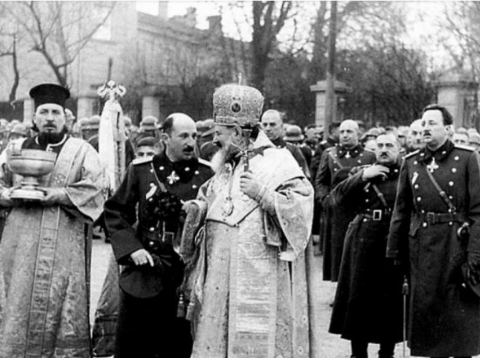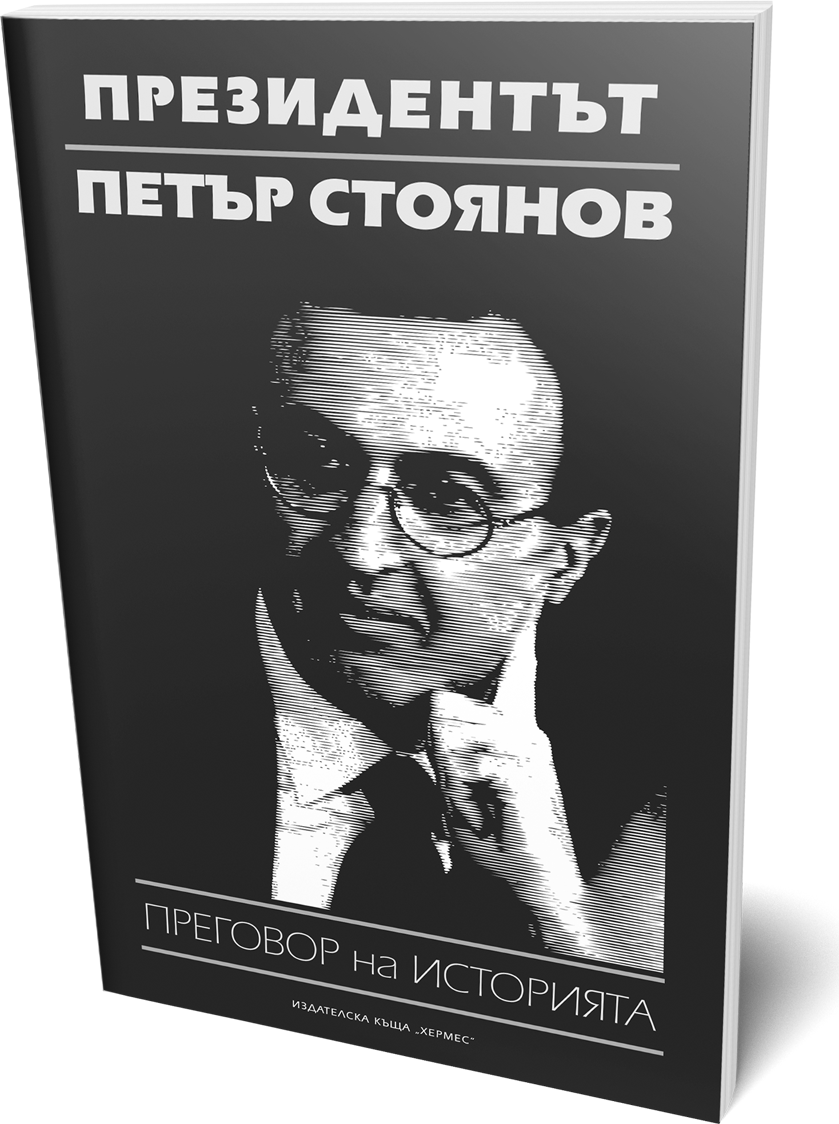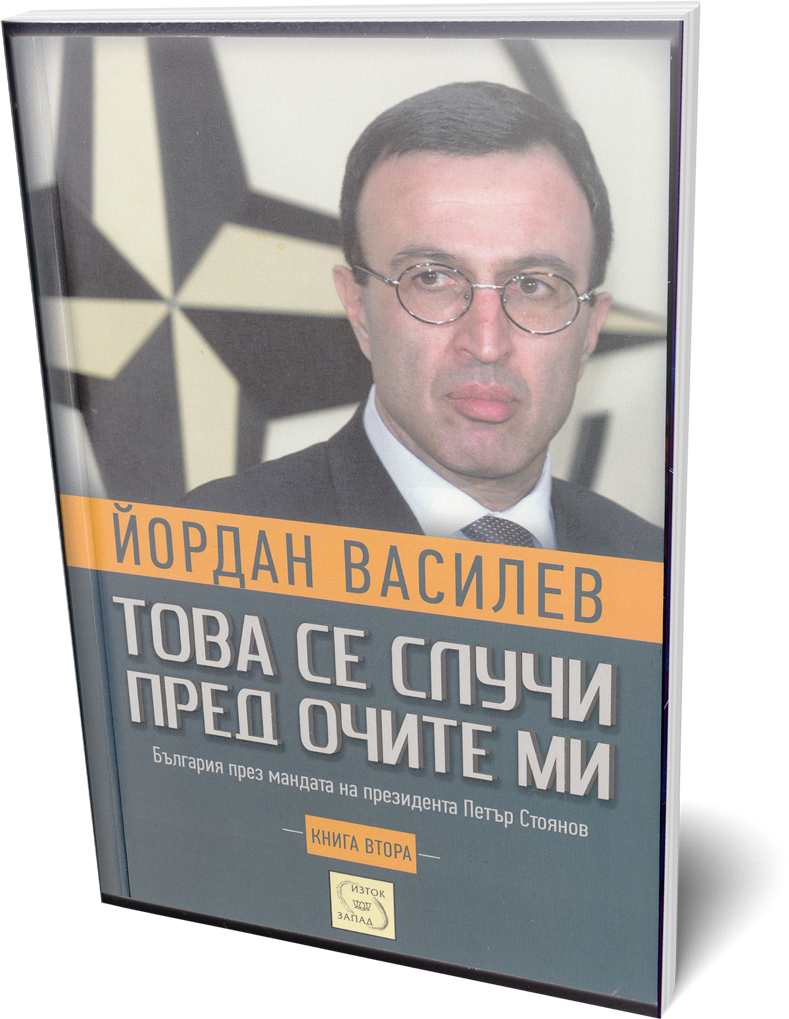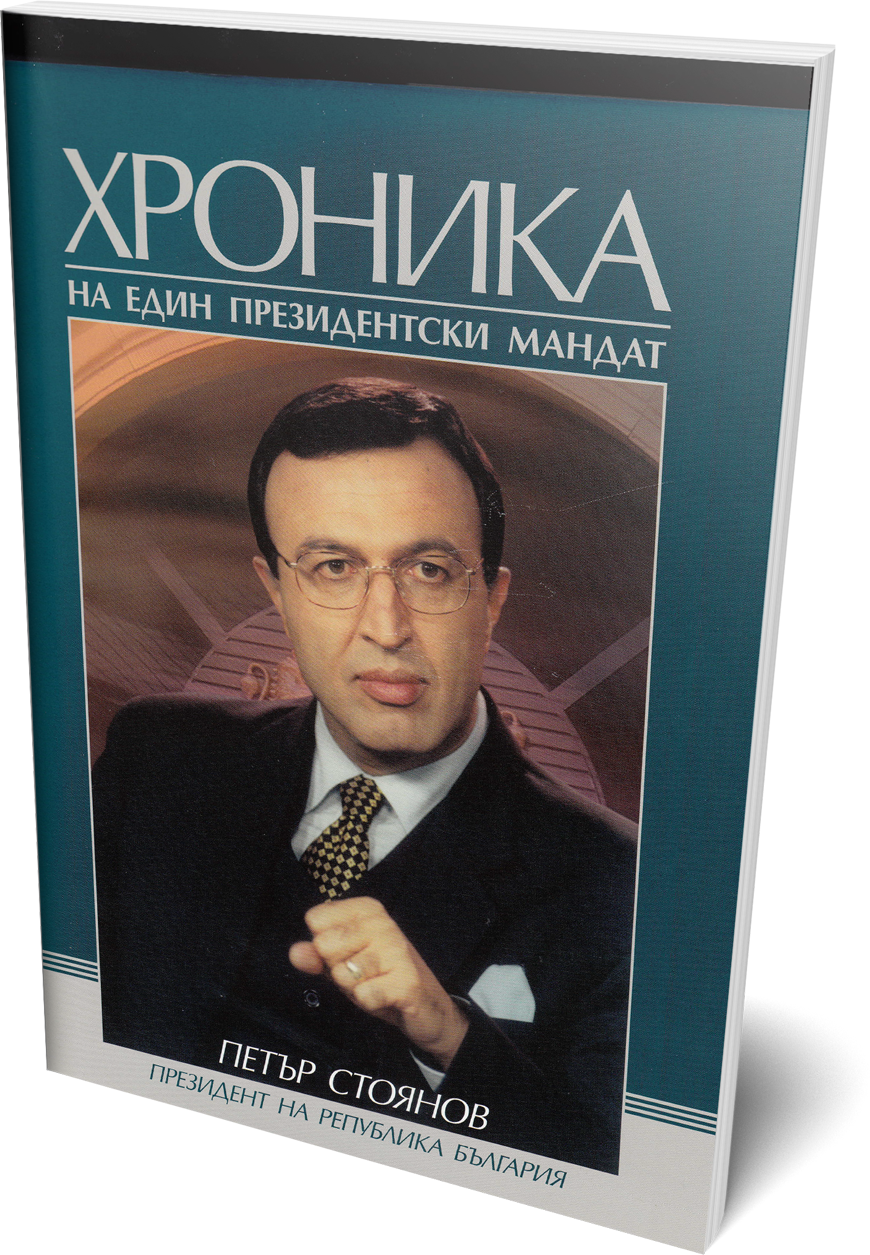Petar Stoyanov, 2012
March 10, 2012
Article for “24 hours” newspaper
Why the salvation of Bulgarian Jews remains the “longest kept secret” in the history of World War II
By saving their Jewish compatriots, the Bulgarian people wrote a remarkable chapter in their own and in world history, which, unlike previous chapters, is not associated with impressive battles and victorious wars. This great achievement is not measured by the number of deaths – it is measured by the number of survivors – it is a paradoxical feat in the backdrop of millions of victims who fell “in the name of the fatherland” on the battlefields of World War II.
At that point in history, Bulgaria had lost two great wars despite the exceptional courage of our soldiers. Having been consigned to the camp of the defeated and humiliated following the Treaty of Neuilly and even accused of aggression towards its neighbouring states, during World War II, against all odds Bulgarians gave Europe a brilliant lesson in humanity and compassion.
I have been asked many times – sometimes provocatively – what our contribution to European civilization and culture is; do we have our Leonardo and Picasso, Goethe and Balzac. My answer has always been: Yes, we have our old and remarkable culture, but our greatest contribution to European civilization is the salvation of 48,000 persecuted human beings, at a time when nations calling themselves “great” did not have the courage or the will to do so.
Whenever I talk about this episode from our history, I encounter the admiration, gratitude and at the same time astonishment in the eyes of the audience. A few years ago at the Kodak Theatre in Los Angeles, several hundred American Jews were shocked by the story about Bulgarian heroism, and the legendary CNN presenter Larry King asked me with bewilderment why no one knew anything about this.
Here comes the question: why the salvation of Bulgarian Jews remained the “longest kept secret” in the history of the Second World War, as aptly asked by the Jewish historian Michael Bar-Zohar. Why didn’t Todor Zhivkov’s communist regime, a master of myth-making, take advantage of a true story and improve the country’s prestige in the world at a time when communist Bulgaria had become an international pariah as the servant of the Soviet Union and a gross violator of human rights?
In fact, communists did try – they even created a film in which Todor Zhivkov played a central role in saving the Jews. Despite Zhivkov’s unlimited power at the time, nobody believed this untrue propaganda.
The truth is that the communist party did indeed take part in the march in defence of Bulgarian Jews on May 24, 1943, organized by Rabbi Zion of Sofia and followed by mass arrests. Communists were then calling themselves “the Bulgarian Workers’ Party”. However, the key figure was not Todor Zhivkov, but Valka Goranova – a member of the Sofia District Committee who understood the importance of the march and organized the participation of party members in the protest. This empathy of the Bulgarian Workers Party should not be underestimated, but it was by no means the only political force, much less the decisive one in the salvation of the Bulgarian Jews. Most members of the then non-communist opposition, such as Mushanov and Nikola Petkov, strongly protested against the plan to deport Bulgarian Jews. A protest petition was signed by 63 prominent intellectuals and writers, and the famous writer Elin Pelin met in person with the Bulgarian King Boris III, who is believed to have been a sympathizer of the Jews and without whose ultimate sanction the deportation would probably have happened. The Union of Writers, the Medical Union, the Bar Association, the Bulgarian Chamber of Commerce, the Slavia Sports Association, and even the Federation of Reserve Officers and the Federation of Reserve Sergeants and Soldiers publicly opposed the deportation.
Most impressive, however, was the reaction of the Bulgarian Orthodox Church. Archbishop Stefan demonstratively received a delegation from the Bulgarian Jewish community and served a special liturgy in defence of the Jews at Alexander Nevsky Cathedral.

Tsar Boris III and Archbishop
Stefan. 1943.
Many years later, the Jewish author Gabriele Nissim, paid tribute to the unprecedented act of our bishops by stating: “Such a prayer, if said by the Pope in St. Peter’s Square, would have had a profound effect on all Christians to stand against the Holocaust. But Pius XII did not say it.” The Bulgarian exarch did it. It was repeated by Bishop Kyril of Plovdiv, who told the Jews imprisoned in a warehouse: “Wherever you go, I will be there for you.” Finally, the Holy Synod unanimously signed its famous statement to the Prime Minister against the racist Law for Protection of the nation and against the deportation of Bulgarian Jews.
At the heart of this unprecedented reaction of the Bulgarian clergy, intellectual and artistic elite was the valiant act of the Deputy Speaker of Parliament from the ruling majority party, Mr. Dimitar Peshev. In fact, he was the first to be informed (by his fellow Jews) about the secret plan for the deportation of 48,000 of our compatriots from the territory of “old” Bulgaria.
As the reaction time was extremely short, the salvation of Bulgarian Jews was literally in the hands of Dimitar Peshev. He had two options – one was subordination to his Party’s will, which could easily be masked by the slogan “National interests require sacrifices” or by the excuse that rumours of death camps were just propaganda and Jews would be deported to Germany only as labour force (and in fact, the horrifying truth about Auschwitz and Treblinka became known only after the end of the war). The other course of action would certainly put him in serious trouble, but save his dignity and the dignity of the Bulgarian people. Peshev chose the latter and commenced a battle, which would be won by the majority of Bulgarian citizens and institutions, but which might never have begun, much less won, without his courage and sense of responsibility to history.
Dimitar Peshev organized a petition against the deportation of Jews, which was signed by 43 MPs in just one day – all from the pro-government majority. Later, under strong pressure, some revoked their decision, but the subscription became a public fact and unlike the secret deportation of Jews from Thrace and Macedonia, unleashed both the anger and solidarity of Bulgarian society.
The petition organized by Dimitar Peshev is among the most paradoxical and contradictory pages in Bulgarian history and by the way, among the most carefully concealed. There is a reason for that – it shatters the carefully built myth that the history of fascist Bulgaria, i.e. Bulgaria before September 9th, 1944, was filled only with violence, assassinations, terror and humiliating allegiance to Nazi Germany, because Peshev’s petition was signed by representatives of the pro-German majority, including by Prof. Alexander Tsankov.
Of course, those politicians were not blameless. All of them had already supported the Law for Protection of the Nation, which introduced humiliating measures against Bulgarian Jews. Then they had voted for Bulgaria’s accession to the Tripartite Pact – two acts of which they cannot be proud. But in the name of truth, let us look at the general political climate at the time. After the Balkan Wars and the First World War, the national ideal for the unification of all Bulgarian lands was not only failing, but despite the exceptional heroism of the Bulgarian soldiers, new territories had been annexed from the country.
The unfair political contracts instigated the desire for their revision and a sense of revenge. And when the “old ally” Germany started to prepare for such a revision, Bulgaria saw this as its chance. On top of all that, with Hitler’s mediation, in 1940 Romania returned the territory of Southern Dobrudja to our country, which aroused real popular enthusiasm. From then on, the Bulgarian national ideal began to seem feasible only with the support of Germany. Shameful laws, such as the one for the Protection of the Nation, were beginning to seem like a tolerable compromise in the name of national unification.
Nevertheless, Bulgarians refused to pay the price of 48,000 lives, even in the name of its most profound dream – the realization of the national ideal for unification. “Small nations cannot afford to ignore such moral arguments, which will always remain a strong, perhaps the strongest weapon left at their disposal,” Dimitar Peshev wrote in a brilliant way in the petition of the 43 MPs.
And it is precisely this contradiction between their previous behaviour as Hitler’s allies and their understanding of humanism and national morality that makes the action of the MPs from the majority incommensurable with any of the acts of sympathy for the Jews during the war. I have told the incredible and poignant story of the rescue of Bulgarian Jews in various parts of the world and everywhere, especially in America, where a happy ending is compulsory, shocked audiences have asked me: “And what happened to the rescuers? Were they honoured by the whole Bulgarian society after the collapse of Nazism? ”No, was my answer, they were not honoured.”And what was their fate after all?” – would be the next question. Here it is: in the first years of communist rule 20 of the 43 members of Parliament who signed the petition, were sentenced to death by the so called “People’s Court”, 6 to life imprisonment, 8 to 15 years, and 4 to 5 years in prison. Three were acquitted. Dimitar Peshev “was lucky” – he was sentenced to 15 years imprisonment. Among the accusations against him was that he was “pro-Nazi and responsible for the persecution of Jews and communist partisans” in our country. Those opposition parliamentary leaders who not only defended Bulgarian Jews, but who opposed Bulgaria’s accession to the Tripartite Pact, were also convicted. The conclusion by Gabriele Nissim, who wrote the impressive book “The Man Who Stopped Hitler”, is extremely sad: “This was the beginning of the history of the Bulgarian Gulag. Dimitar Peshev saved the honour of his country during the Second World War… However, no one saved the honour of the nation during the long years of the camps.”
Nissim’s conclusion is not at all in favour of the communist regime. The actions to save the Bulgarian Jews beg the conclusion that has not been made to date: In the years defined by communist historians as the time of the darkest “monarcho-fascist dictatorship”, civic society obviously existed in our country. How else to explain the protests of the clergy, of intellectuals, of doctors, of lawyers, of reserve officers against the deportation of the Jews? They were protests not only against the government of Bulgaria, but in practice also against our powerful ally Germany, whose tanks had already overrun almost all of Europe and almost a third of the Soviet Union. Only after two years into the “people’s democratic rule”, however, things had changed drastically. The Bulgarian Orthodox Church, the only church in the world that had raised its voice in defence of Jews during the war, would not find the strength to defend its own Orthodox Christians during the next 45 years of communism, including the persecutions for attending church at Christmas and Easter. The Writers’ Union did not dare to defend the great writer Dimitar Talev when he was sent to the Kutsian concentration camp on charges of nationalism because of his claim that he was Bulgarian and not Macedonian (contrary to the directive of the “leader and teacher” Georgi Dimitrov, according to whom the Bulgarians from Pirin Macedonia had to be called Macedonians). The Sofia Bar Association expelled Yosif Yasharov as a “Freemason and reactionary, hostile to the people’s government” because he dared to defend Dimitar Peshev in court – something that two other Jewish lawyers, Lidji and Mevorah, had previously declined. Could anyone in communist Bulgaria just imagine that trade unions, intellectuals or ordinary citizens could publicly and without brutal repercussions, defend their colleagues or compatriots from the unjust political persecution? The number of Bulgarians unjustly killed and thrown into prisons and camps with or without a sentence, or evicted from their homes, removed from their native places and interned, banned from attending University, is probably close to the number of Jews rescued by the Bulgarian people.
This is how the story of saving the Bulgarian Jews has become the story of saving the Bulgarian national memory. It was obviously inconvenient for the new communist rulers after the Second World War – they simply could not afford to admit the role of their “class” enemies in writing one of the most sublime and humanistic chapters of Bulgarian history. Hence for so long they kept depriving the entire Bulgarian nation from the right to be proud of it.








